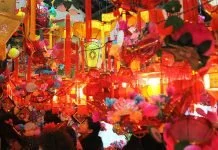Nicholas Nguyen.
It feels uncomfortable to say my name out loud; something about it feels like an oxymoron.
In the late 1990s and early 2000s, “Nicholas” clinched a spot among the Andrew’s and Michael’s of America as one of the most popular boys’ names in the US. Nicholas is a classic, inherently American name.
And then, there’s the second half of my name. Nguyen. It’s the predominant surname in Vietnam, accounting for between 30-40% of all Vietnamese last names. Nguyen is a classic, inherently Asian name.
So, any attempt to fuse these separate, distinct elements into one entity is slightly difficult. It creates a blaring exclamation of a name, forcing together two obvious contrasts in juxtaposition with one another. Something about it makes me feel like attaching the red wire of an explosive with the blue wire: it’s bound to combust.
But then again, that’s me.
Nicholas. Nguyen. American. Asian. Each day, I feel these opposing identities brawling inside of me, clawing at one another, in a desperate attempt to understand the enigma of being an Asian-American. It should be easier! Asian-American is hyphenated for a reason—there’s a bridge between the gap, a conduit for melding the two into a single identity. Yet, the divide between “Asian” and “American” has never seemed bigger to me. I’m too scared to cross that bridge, to unearth that middle ground between my two clashing forces.
The other day, my FWS instructor wrote a prompt on the whiteboard: “Write a letter to your ‘historical self’ from your ‘self’ self.” In Claudia Rankine’s Citizen, the book we’ve been reading in class, the author discusses the differentiation between these two versions of identity. ‘Self’ self refers to one’s personal identity, untethered to a racial or historical context. ‘Historical’ self, on the other hand, views the individual in the aggregate, factoring in one’s skin color and the legacy of one’s ancestors.
After putting pen to paper and scrawling down my initial thoughts in response to the prompt, I took a step back. What I had written was more than just a letter… it was an apology letter. A block of words begging for forgiveness, pleading my ‘historical’ self to understand why my ‘self’ self had abandoned it.
Throughout my childhood, I was raised in a household where both English and Vietnamese were interwoven into our daily dialogues. I would eat home-cooked Vietnamese thịt kho for lunch, then stop by McDonald’s with my mom for a quick dinner. Back then, my two identities meshed with one another perfectly, a natural push-and-pull between my Asian and American sides.
But when I started going to elementary school, this balance fell apart, replaced by an utter rejection of my heritage. As a first grader, I began asking my mom to stop packing me Vietnamese food, opting for the obviously inferior hot lunches served in the cafeteria. I quickly became aware of the distinction between my ‘self’ self and my ‘historical’ self, and I didn’t want to be “othered” for eating anything besides the norm. As a result, I distanced myself as far as possible from the stereotypical image of the nerdy, weak Asian with stinky, foreign food.
Since then, my relationship with my Vietnamese heritage has only weakened. I selfishly chose to hang out with my high school friends over celebrating Tết, Vietnamese New Year, with my family. Gradually, I lost my fluency in Vietnamese, forcing me to communicate with my grandma solely through broken Vietnamese and body language.
And as I reflect back on my identity, I look back with extreme regret. Every phone call with my grandma, every mispronunciation of a Vietnamese phrase, every inability to identify the name of a Vietnamese snack—each is a reminder of my failure to embrace who I am. However, I’ve come to realize that my ‘historical’ self and ‘self’ self aren’t polar ends on a spectrum. In fact, it’s impossible to completely separate the two. Both are who I am. Despite my past attempts, I will never be able to extract the Asianness that makes me, me.
As I wrap up my freshman year, I feel as if I’m on the brink of a watershed moment. This summer, I’ll be returning home to my mom and grandma, an occurrence that will only decrease in frequency as I gain more independence. It’ll be a chance for me to return to my roots, to speak the language that my ancestors breathed and to understand the unique perspective of the Vietnamese-American experience. But at the same time, I don’t know if I’ll ever be able to shake away the doubts, the guilt. Am I a race traitor for abandoning my heritage? Is it too late to embrace my cultural identity? Am I too American to be Vietnamese?
But I’m hoping to overcome these doubts and strike a balance between my two identities. Nicholas. Nguyen. American. Asian.Yes, I am a composition of two separate elements condensed into one. But I’m determined to stop viewing my name and my identity as a constant struggle between two opposing forces. Rather, my name will be a representation of both my nationality and heritage, melding into one cohesive whole.
Nicholas Nguyen. Asian-American. I’m working to bridge that gap.









